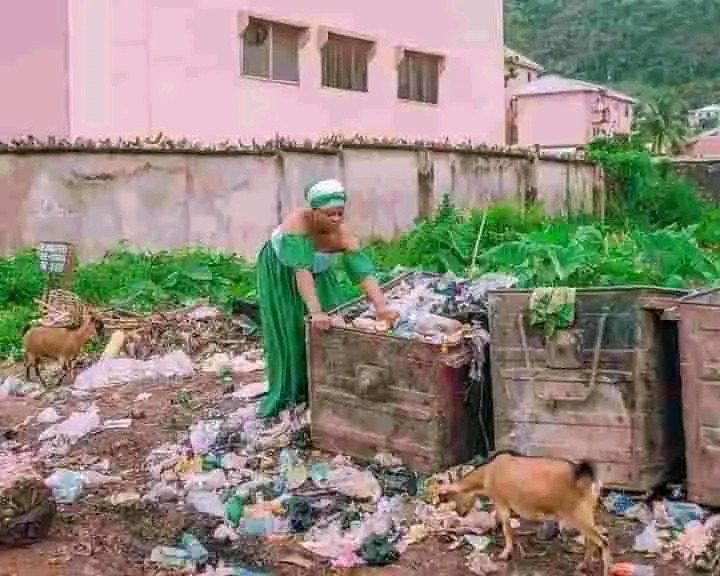National Issues
Reducing Waste In Nigeria’s Environment -By Mohammed Aisami
Governments could build companies or industries using waste materials obtained through various sources throughout Nigeria which would reduce labor costs while generating income for individuals thereby reducing unemployment rates amongst youths across all sectors including private owners within society itself if needed.

Nigeria generates millions of tons of solid waste annually with most coming from households; local industries also contribute significantly. This leads to environmental challenges such as blocked drainages, increased malaria outbreaks diseases, air/water pollution into society due to the lack of proper cleaning practices by local businesses producing products for people’s consumption.
Waste refers to any material or substance that needs to be disposed of due to damage, contamination, or being rendered useless. It can flow freely like water and may be hazardous. Waste is a combination of garbage and refuse found in homes and other locations where humans and animals reside.
Unwanted tangible materials resulting from human activities are referred to as municipal solid waste. These wastes originate from commercial and industrial operations, population growth, and economic development in urban areas. According to The World Bank (2019), municipal solid waste usually comes from human settlements, small industries, and commercial activities.
Industries have many opportunities for engaging in cleaning up their environment through monthly sanitation exercises that include creating orientation about environments for different societies. His Excellency Professor BABAGANA UMARA ZULUM Of Borno State reintroduced monthly sanitation every end month on Saturdays between 7:00 am-10:00 am.
Industries can collaborate with each other by donating baskets or containers placed at specific locations accessible for people’s disposal of their wastes instead of just paying taxes because they produce 50% percent of the wastes generated within the country.
Citizens have a responsibility towards ensuring clean environments by disposing wastes in available baskets/locations while increasing awareness about causes/effects associated with waste management practices among themselves since 60% percent are uninterested due to illiteracy levels present around them.
Environmental agencies should increase/expanding technologies &awareness via various media outlets such as newspapers/radio/TV/social media platforms/orientation accessible ways while incorporating illiterate people who cannot read/write within their respective communities’ environments actively.
Governments could build companies or industries using waste materials obtained through various sources throughout Nigeria which would reduce labor costs while generating income for individuals thereby reducing unemployment rates amongst youths across all sectors including private owners within society itself if needed.
In conclusion – “One man’s trash is another man’s treasure.”Producing creative methods/products is an option for reducing waste accumulation since citizens believe one day there will come a time when development occurs nationwide alongside respecting information concerning rules/regulations issued by government officials aimed at promoting safety/environmental healthiness standards within our immediate surroundings daily basis until it becomes second nature over time leading us towards achieving significant results together collectively!
MOHAMMED AISAMI, Department Of Mass Communication, Borno State University.



















